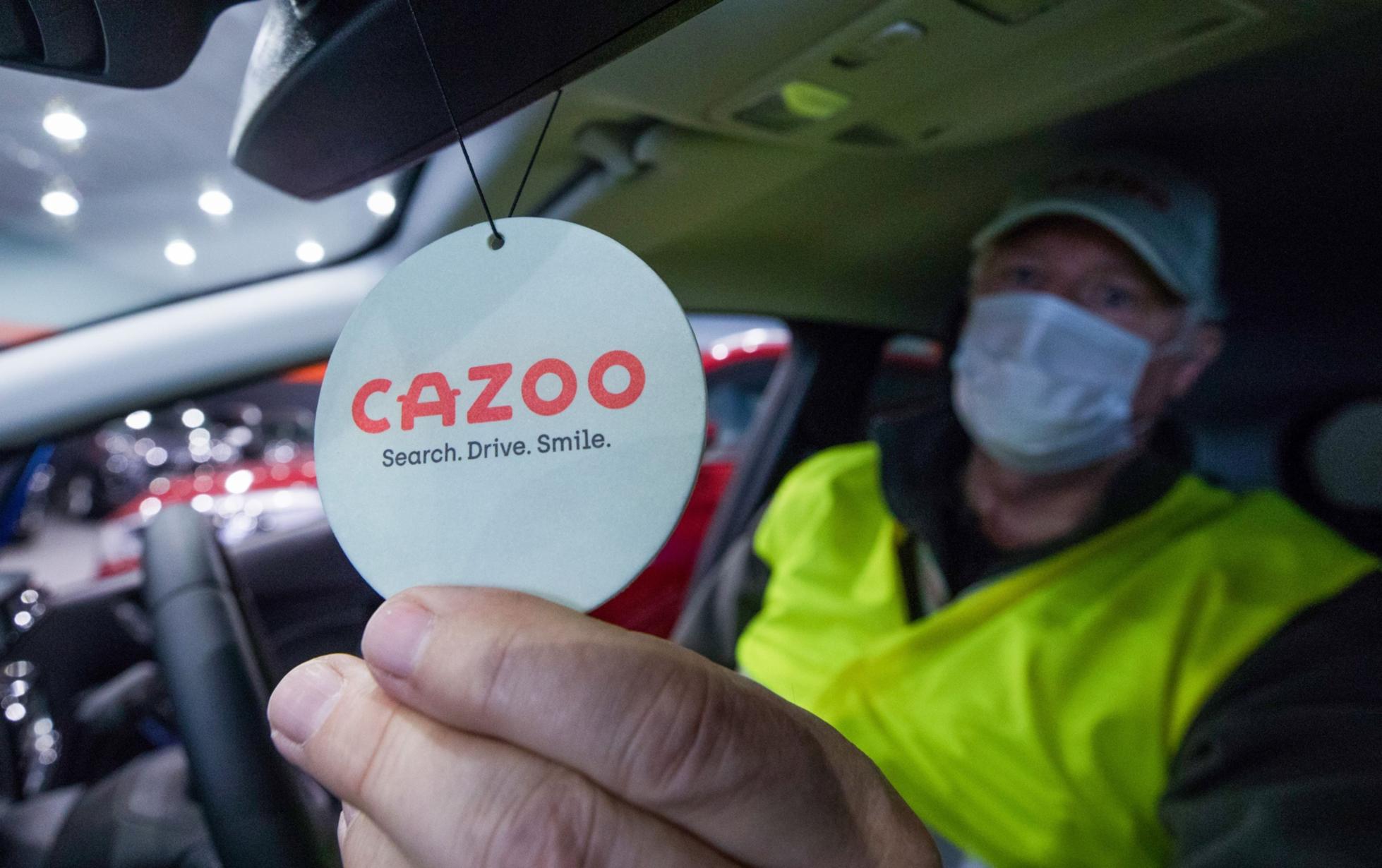
British online used car dealership Cazoo has raised $1 billion from a reverse merger with billionaire Dan Och’s blank check company to help fund its bid to become the Carvana of Europe.
The merger with the New York Stock Exchange-listed AJAX I values the group at $8 billion ($6 billion) and comes just 20 months after the startup was launched by founder Alex Chesterman. The British entrepreneur, who has made a career out of copycatting successful American startups, now plans to launch its online car-buying service into France and Germany and expand its car-subscription business.
Cazoo shares rose 6.54% to $9.29 after Chesterman rang the opening bell at the New York Stock Exchange but have stayed below the $10 per share with which the SPAC went public. “We remain obsessed with delivering the best car buying and selling experience for consumers across the U.K. and mainland Europe, and the capital raised from this transaction will give us the resources to further accelerate our growth,” says Chesterman, Cazoo’s CEO.
The success of Tempe, Arizona-based Carvana in convincing drivers to buy a used car online, and it's now $60 billion stock market valuation, has inspired a crop of startups hoping to import the concept to Europe’s $690 billion used car market. “I realized this was the single biggest retail market bar none and it has the lowest digital penetration bar none, so there was a very significant opportunity because all other markets have shifted partially online,” says Chesterman.
Cazoo is now pitched against French online car dealership Aramis Group, which is listed on Euronext Paris in June, and Germany’s Auto1, which now has a stock market value of $9.5 billion after going public on the Frankfurt Stock Exchange in February.

Cazoo’s $8 billion valuation has raised eyebrows from some investors when rival British car dealerships Pendragon has a stock market value of $366 million, and Lookers PLC has a market cap of $357 million. Pendragon and Lookers each sold around 40,000 cars in 2020, roughly double Cazoo’s sales, while car auction house Constellation launched its own digital operation, Cinch, in October that aims to sell 50,000 cars this year.
“It’s not intuitive that Cazoo should be worth more than all the other U.K. car dealers put together when they sell more cars at this point in time,” says Mike Allen, head of research at investment bank Zeus Capital. “There isn’t a lot of difference in model now between a U.K. motor retailer and what Cazoo does but they can’t compete on marketing because they don’t have the same budget.”
Chesterman, who holds a 21.4% stake in the business which made a $135 million (£99 million) loss on $221 million (£162 million) in revenue in 2020, was dismissive of the comparison. “The same story has played out in every single market where the traditional offline retailers, the incumbents, have started with a big share or they've had 100% of the market,” he says. “Then new, disruptive players come into the market, and the incumbents obviously want to be dismissive.”
The deal also marks a major windfall for the owner of the U.K.’s Daily Mail newspaper. The paper’s publisher DMGT was an early backer of Cazoo, and Chesterman’s earlier property listing portal Zoopla, and its 16% stake in the car website is now worth $1.2 billion. DMGT’s chairman, Lord Rothermere, part of its founding family, announced plans in July to take the media group private.
Another early investor Alliott Cole, co-CEO of Octopus Ventures, said Cazoo’s listing had raised the bar for what was possible for European startups. “The speed of execution has still been extraordinary to witness. The logistical challenge of building a business like Cazoo cannot be underestimated, but from day one it has delivered a brilliant experience that customers love,” said Cole, who had backed Chesterman’s earlier ventures DVD rental service Lovefilm and Zoopla.







